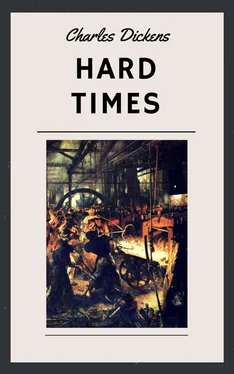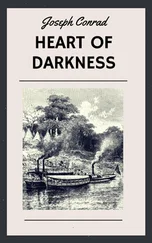So, Mr. M’Choakumchild began in his best manner. He and some one hundred and forty other schoolmasters, had been lately turned at the same time, in the same factory, on the same principles, like so many pianoforte legs. He had been put through an immense variety of paces, and had answered volumes of head-breaking questions. Orthography, etymology, syntax, and prosody, biography, astronomy, geography, and general cosmography, the sciences of compound proportion, algebra, land-surveying and levelling, vocal music, and drawing from models, were all at the ends of his ten chilled fingers. He had worked his stony way into Her Majesty’s most Honourable Privy Council’s Schedule B, and had taken the bloom off the higher branches of mathematics and physical science, French, German, Latin, and Greek. He knew all about all the Water Sheds of all the world (whatever they are), and all the histories of all the peoples, and all the names of all the rivers and mountains, and all the productions, manners, and customs of all the countries, and all their boundaries and bearings on the two and thirty points of the compass. Ah, rather overdone, M’Choakumchild. If he had only learnt a little less, how infinitely better he might have taught much more!
He went to work in this preparatory lesson, not unlike Morgiana in the Forty Thieves: looking into all the vessels ranged before him, one after another, to see what they contained. Say, good M’Choakumchild. When from thy boiling store, thou shalt fill each jar brim full by-and-by, dost thou think that thou wilt always kill outright the robber Fancy lurking within—or sometimes only maim him and distort him!
MR. GRADGRIND walked homeward from the school, in a state of considerable satisfaction. It was his school, and he intended it to be a model. He intended every child in it to be a model—just as the young Gradgrinds were all models.
There were five young Gradgrinds, and they were models every one. They had been lectured at, from their tenderest years; coursed, like little hares. Almost as soon as they could run alone, they had been made to run to the lecture-room. The first object with which they had an association, or of which they had a remembrance, was a large black board with a dry Ogre chalking ghastly white figures on it.
Not that they knew, by name or nature, anything about an Ogre Fact forbid! I only use the word to express a monster in a lecturing castle, with Heaven knows how many heads manipulated into one, taking childhood captive, and dragging it into gloomy statistical dens by the hair.
No little Gradgrind had ever seen a face in the moon; it was up in the moon before it could speak distinctly. No little Gradgrind had ever learnt the silly jingle, Twinkle, twinkle, little star; how I wonder what you are! No little Gradgrind had ever known wonder on the subject, each little Gradgrind having at five years old dissected the Great Bear like a Professor Owen, and driven Charles’s Wain like a locomotive engine-driver. No little Gradgrind had ever associated a cow in a field with that famous cow with the crumpled horn who tossed the dog who worried the cat who killed the rat who ate the malt, or with that yet more famous cow who swallowed Tom Thumb: it had never heard of those celebrities, and had only been introduced to a cow as a graminivorous ruminating quadruped with several stomachs.
To his matter-of-fact home, which was called Stone Lodge, Mr. Gradgrind directed his steps. He had virtually retired from the wholesale hardware trade before he built Stone Lodge, and was now looking about for a suitable opportunity of making an arithmetical figure in Parliament. Stone Lodge was situated on a moor within a mile or two of a great town—called Coketown in the present faithful guide-book.
A very regular feature on the face of the country, Stone Lodge was. Not the least disguise toned down or shaded off that uncompromising fact in the landscape. A great square house, with a heavy portico darkening the principal windows, as its master’s heavy brows overshadowed his eyes. A calculated, cast up, balanced, and proved house. Six windows on this side of the door, six on that side; a total of twelve in this wing, a total of twelve in the other wing; four-and-twenty carried over to the back wings. A lawn and garden and an infant avenue, all ruled straight like a botanical account-book. Gas and ventilation, drainage and water-service, all of the primest quality. Iron clamps and girders, fire-proof from top to bottom; mechanical lifts for the housemaids, with all their brushes and brooms; everything that heart could desire.
Everything? Well, I suppose so. The little Gradgrinds had cabinets in various departments of science too. They had a little conchological cabinet, and a little metallurgical cabinet, and a little mineralogical cabinet; and the specimens were all arranged and labelled, and the bits of stone and ore looked as though they might have been broken from the parent substances by those tremendously hard instruments their own names; and, to paraphrase the idle legend of Peter Piper, who had never found his way into their nursery, If the greedy little Gradgrinds grasped at more than this, what was it for good gracious goodness’ sake, that the greedy little Gradgrinds grasped it!
Their father walked on in a hopeful and satisfied frame of mind. He was an affectionate father, after his manner; but he would probably have described himself (if he had been put, like Sissy Jupe, upon a definition) as ‘an eminently practical’ father. He had a particular pride in the phrase eminently practical, which was considered to have a special application to him. Whatsoever the public meeting held in Coketown, and whatsoever the subject of such meeting, some Coketowner was sure to seize the occasion of alluding to his eminently practical friend Gradgrind. This always pleased the eminently practical friend. He knew it to be his due, but his due was acceptable.
He had reached the neutral ground upon the outskirts of the town, which was neither town nor country, and yet was either spoiled, when his ears were invaded by the sound of music. The clashing and banging band attached to the horse-riding establishment, which had there set up its rest in a wooden pavilion, was in full bray. A flag, floating from the summit of the temple, proclaimed to mankind that it was ‘Sleary’s Horse-riding’ which claimed their suffrages. Sleary himself, a stout modern statue with a money-box at its elbow, in an ecclesiastical niche of early Gothic architecture, took the money. Miss Josephine Sleary, as some very long and very narrow strips of printed bill announced, was then inaugurating the entertainments with her graceful equestrian Tyrolean flower-act. Among the other pleasing but always strictly moral wonders which must be seen to be believed, Signor Jupe was that afternoon to ‘elucidate the diverting accomplishments of his highly trained performing dog Merrylegs.’ He was also to exhibit ‘his astounding feat of throwing seventy-five hundred-weight in rapid succession backhanded over his head, thus forming a fountain of solid iron in mid-air, a feat never before attempted in this or any other country, and which having elicited such rapturous plaudits from enthusiastic throngs it cannot be withdrawn.’ The same Signor Jupe was to ‘enliven the varied performances at frequent intervals with his chaste Shaksperean quips and retorts.’ Lastly, he was to wind them up by appearing in his favourite character of Mr. William Button, of Tooley Street, in ‘the highly novel and laughable hippo-comedietta of The Tailor’s Journey to Brentford.’
Thomas Gradgrind took no heed of these trivialities of course, but passed on as a practical man ought to pass on, either brushing the noisy insects from his thoughts, or consigning them to the House of Correction. But, the turning of the road took him by the back of the booth, and at the back of the booth a number of children were congregated in a number of stealthy attitudes, striving to peep in at the hidden glories of the place.
Читать дальше












